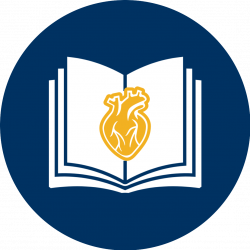On the 4th of July, my dad downed two glasses of whiskey at dinner.
We’d spent the afternoon hiking along the resplendent shores of Walden Pond. Lapping against rocks and sand, the bright green water had been dotted with families gambolling about in bathing suits. At the pond’s far edge, beneath the pine trees’ variable shade, a nondescript sign commemorated the spot where Henry David Thoreau had spent two years composing his magnum opus. But the house he’d lived in and built with his own two hands had been carted away by some private owner, its presence at the pond reduced to a motley, rectangular outline of rocks roped off by chains.
My dad spent the evening after dinner reclining on the couch from the day’s activities. Summer classes being online due to public health concerns, I was hunched over a set of organic chemistry problems when he collapsed, some twenty minutes after dinner, outside my door.
I’d heard his labored breathing drifting down the hallway without paying it any mind. Eventually, I did rise from my stupor of cyclohexane molecules and electron-pushing arrows—I realized I’d never heard him breathe like that—but by then, he had already hit the ground with a thud like the toppling of a heavy bookcase.
His rag-doll limbs still warm as we shook them, his lips drawn in an awful half-smile, his eyes wide open but pointing blankly at the ceiling—these were the most terrible parts. Not the sight of my mom bent over his supine body screaming his name, or the stream of scarlet trickling from who knows where down his temple, but the sneering, physical life of his body in a moment when he, as a person, had died.
I dialed 9-1-1 for the first time in my life that night. “My dad—he’s unconscious—he fell—and there’s blood on his head—” The dead man regained consciousness midway through the call, and my voice regained some cadence. We sat him on a chair as we waited for the ambulance to arrive.
The readings at the hospital identified low blood pressure as the culprit. Over the next few weeks, arguments would flare up around the ambulance insurance bill. Drawing from the pages of a physiology textbook, I also pieced together my own story of how my dad took his fall.
Low blood pressure has two basic causes: dehydration and over-dilated blood vessels. Because a large fraction of blood is water, dehydration decreases the amount of blood available to exert pressure against blood vessel walls. Meanwhile, blood vessel dilation induces low blood pressure by widening the space through which blood can flow. My dad’s low blood pressure likely resulted from dehydration: we’d sweated away the afternoon on our hike at Walden Pond, and his swigs of whiskey at dinner couldn’t have helped—alcohol is a diuretic, meaning it stimulates your kidneys to remove water from your blood, converting it to urine.
He’d been on his way to the bathroom when he lost consciousness and fell. His upright walking position had placed his brain above his heart, challenging his heart’s ability to pump low-pressure blood up to his brain. This lack of blood had deprived his brain of oxygen, causing him to faint. Luckily, though, my dad collapsed on level ground, and his resulting horizontal posture had allowed blood to flow back to his brain, helping him regain consciousness.
Playing doctor made me feel like a bit of a badass—I was armed with knowledge now, not powerless with shock! If nothing else, I’d surely proven myself worthy of a medical school acceptance. Except that badassery brought only so much reassurance, because all the textbooks in the world couldn’t erase the horror I’d felt at the sight of my dad’s limp body and his wide, vacant eyes. After that night, I could not watch him walk through the living room without fearing he might pitch forward at any moment.
My dad had never been built of blood vessels and oxygen-hungry brain cells. For nineteen years of my life, he’d been built of sweeping floors on weekend mornings and boiling tasteless vegetable dishes for dinner, of bugged-out eyes in moments of anger and warm arms hugging me after my first flight home from college. My dad was a person, not an amalgamation of physiological mechanisms. But the natural laws overseeing the elegy of rocks at Walden Pond tyrannized him all the same, and he could be killed by something as arbitrary as too much whiskey on a 4th of July evening. And much like Henry David Thoreau’s presence at Walden Pond, he would die one day. My dad was fragile—so, so fragile.
Jenny is a UC Berkeley student pursuing her B.A. in molecular cell biology and comparative literature. She is also one of Atrium’s editors.

